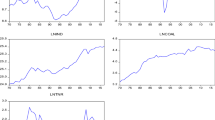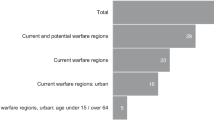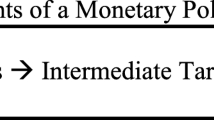Abstract
French economy has not still existed form COVID-19 consequences that it has been hit by economic consequences of the war in Ukraine and the new geopolitical deal. So far, through an extensive aid mechanism the government has sheltered the French economy of the worse consequences, mostly on energy prices and inflation, of the new situation. Nevertheless, the cost of this aid has been high and could be difficult to sustain. If economic results for 2022 were quite satisfactory there is some important uncertainties looming on the future. The combination of reduced household demand, as increase in production costs seen in many sectors has not yet translated into a corresponding increase in consumer prices, and high energy prices could push the economy into a depression in 2023. The “enchanted parenthesis” known by the French economy is therefore set to end with the beginning of 2023. The extent of the coming recession remains very difficult to estimate.








Similar content being viewed by others
Notes
https://www.newyorkfed.org/microeconomics/sce#/ et Bank of England. How has the COVID affected Household Savings. 25 novembre 2020. https://www.bankofengland.co.uk/bank-overground/2020/how-has-covid-affected-household-savings.
https://www.ouest-france.fr/economie/entreprises/crise-du-coronavirus/covid-19-la-france-en-tete-des-aides-publiques-versees-aux-entreprises-dans-l-union-europeenne-7188737. Voir aussi: https://www.economie.gouv.fr/covid19-soutien-entreprises/crise-sanitaire-mesures-soutien-entreprises-impactees-reprise-epidemique.
Voir l’allocution du Président Emmanuel Macron du 12 juillet 2021. https://www.elysee.fr/emmanuel-macron/2021/07/12/-adresse-aux-francais-12-juillet-2021 ou celle prononcée lors de présentation du “Plan France-2030” le 12 octobre 2021. https://www.elysee.fr/emmanuel-macron/2021/10/12/presentation-du-plan-france-2030.
REFERENCES
K. Mahajan and S. Tomar, “COVID-19 and supply chain disruption: Evidence from food markets in India,” Am. J. Agric. Econ. 103, 35–52 (2021).
H. Zhang, The impact of COVID-19 on global production networks: Evidence from Japanese multinational firms, ERIA Discussion Paper, Series No. 364, 2020.
C. Baba and L. Jaewoo, Second-round effects of oil price shocks—Implications for Europe’s inflation outlook, IMF Working Paper 22/173 (IMF, Washington, DC, 2022).
A. Ari, N. Arregui, S. Black, O. Celasun, D. Iakova, A. Mineshima, V. Mylonas, I. Parry, I. Teodoru, and K. Zhunussova, Surging energy prices in Europe in the aftermath of the war: How to support the vulnerable and speed up the transition away from fossil fuels, IMF Working Paper 22/152 (IMF, Washington DC, 2022).
L. Ball, D. Leigh, and P. Mishra, Understanding US inflation during the COVID era, BPEA Article, September 2022.
IMF, The Fog of war clouds. The European outlook. Regional economic outlook, Washington DC, October 2022.
F. Natalucci, M. S. Qureshi, and F. Suntheim, How illiquid open-ended funds can amplify shocks and destabilize asset prices, IMF Blog, 4O, October 2022. https://www.imf.org/en/Blogs/Articles/2022/10/04/-how-illiquid-open-end-funds-can-amplify-shocks-and-destabilize-asset-prices.
A. Tobias, Interest rate increases, volatile markets signal rising financial stability risks, IMF Blog, October 11, 2022. https://www.imf.org/en/Blogs/Articles/2022/10/11/interest-rate-increases-volatile-markets-signal-rising-financial-stability-risks.
O. Coibion, Y. Gorodnichenko, and M. Weber, The cost of the Covid-19 crisis: Lockdowns, macroeconomic expectations, and consumer spending, NBER Working Paper Series (Natl. Bureau Econ. Res., Cambridge, 2020).
O. Coibion, Y. Gorodnichenko, and M. Weber, Labor markets during the COVID-19 crisis: A preliminary view, NBER Working Paper Series (Natl. Bureau Econ. Res., Cambridge, 2020).
O. Coibion, Y. Gorodnichenko, and M. Weber, How consumers use their stimulus payments?, NBER Working Paper, No. 27693 (Natl. Bureau Econ. Res., Cambridge, 2020).
M. G. Attinasi, A. Bobasu, and A. Manu, “The implications of savings accumulated during the pandemic for the global economic outlook,” ECB Econ. Bull., No. 5 (2021).
M. Beraja and C. K. Wolf, Demand Composition and the Strength of Recoveries, NBER Working Paper, September 17, 2021.
IMF, The fog of war clouds. The European outlook. Regional economic outlook, Washington DC, October 2022, p. 3.
R. Duval, Y. Ji, L. Li, M. Oikonomou, C. Pizzinelli, I. Shibata, A. Sozzi, M. M. Tavares, Labor market tightness in advanced economies, IMF Staff Discussion Note 22/001 (IMF, Washington DC, 2022).
E. Ens, L. Savoie-Chabot, K. See, and S. L. Wee, Assessing labour market slack for monetary policy, Bank of Canada Staff Discussion Paper, No. 2021-15, Ottawa, 2021.
P. Adrjan, G. Ciminelli, A. Judes, M. Koelle, C. Schwellnus, and T. Sinclair, Will it stay or will it go? Analysing developments in telework during COVID-19 using online job postings data, OECD Productivity Working Papers, No. 30, Organisation for Economic Co-operation and Development, Paris, 2021.
P. Pelayo-Romero, Remote Work: Is the honeymoon over? Allianz Trade, July 22, 2022. https://www.allianz-trade.com/en_global/news-insights/economic-insights/allianz-pulse-working-from-home.html.
M. Dumas and C. Ruiller, “Le télétravail: les risques d’un outil de gestion des frontières entre vie per-sonnelle et vie professionnelle?.” Manage. Avenir 74 (8), 71–95 (2014).
European Central Bank (ECB), Public wage and pension indexation in the euro area, Economic Bulletin, No. 1/2022 (Frankfort, 2022).
K. Tidiane, A. Lengyel, and K. Chahande, Fiscal multipliers during pandemics, IMF Working Paper, WP/22/149 (IMF, Washington, DC, 2022), p. 11.
M. Ghassibe and F. Zanetti, State dependence of fiscal multipliers: The source of fluctuations matters, Economics Series Working Papers (University of Oxford, Oxford, 2021), No. 930.
Y. J. Jo and S. Zubairy, State dependent government spending multipliers: Downward nominal wage rigidity and sources of business cycle fluctuations, Working Papers, No. 2021-01-27-001, Department of Economics, Texas A&M University, 2021. https://perc.tamu.edu/publication?id=227.
R. Boyer, “L’économie en crise : le prix de l’oubli de la politique économique,” Econ. Politique 3 (47) 46–90 (2010). https://www.cairn.info/revue-l-economie-politique-2010-3-page-46.htm.
INSEE, Les conséquences de la crise sanitaire de la Covid-19, August 23, 2022. https://www.insee.fr/fr/information/4479280.
J. Sapir, “The French economy between the COVID-19 pandemic and a new geopolitical situation: Relapsing into the crisis or overcoming it?,” Ecom. Soc. Changes: Facts, Trends, Forecast 15 (5), 55–76 (2022).
F. Villeroy de Galhau, Pour l’économie française et européenne, réussir l’après-Covid, Speech delivered at the Paris-Dauphine University, January 18, 2022. https://www.banque-france.fr/sites/default/files/medias/documents/pour_leconomie_francaise_et_europeenne_reussir_lapres-covid_c.pdf.
INSEE, Le PIB ralentit au 3ème trimestre 2022, Informations Rapides, No. 283, October 28, 2022. https://www.insee.fr/fr/statistiques/6654723.
A. Mainguené, P. Girard, and B. Castelletifont, Été 2022: une fréquentation touristique au-dessus de son niveau d’avant-crise, October 11, 2022. https://www.insee.fr/fr/statistiques/6537925.
H. Péléraux, M. Plane, and R. Sampognaro, Croissance vulnérable: impact de la COVID-19 sur l’économie française en 2020 et 2021, Ressources en Sciences Economiques et Sociales, December 16, 2021. https://ses.ens-lyon.fr/articles/croissance-vulnerable-impact-de-la-covid-19-sur-leconomie-francaise-en-2020-et-2021.
H. Heyer and X. Timbeau, “Évaluation de la pandémie de la COVID-19 sur l’économie mondiale,” Rev. OFCE 2 (166), 59–110 (2020).
A. Naboulet, A. Baïz, and G. Tabarly, Évaluation du Crédit d’impôt pour la compétitivité et l’emploi - Synthèse des travaux d’approfondissement. Rapport d’évaluation. France Stratégie, September 2020. https://www.vie-publique.fr/sites/default/files/rapport/pdf/276212.pdf.
M. Brancher, E. Araujo, M. Capraro Brancher, and T. Couto Porto, “The relationship between exchange rate and structural change: An approach based on income elasticities of trade,” Cambridge J. Econ. 45, 1297–1318 (2021).
F. Missio, R. Azevedo Araujo, and F. G. Jayme, “Endogenous elasticities and the impact of the real exchange rate on structural economic dynamics,” Struct. Change Econ. Dyn. 42, 67–75 (2017).
Author information
Authors and Affiliations
Corresponding author
Ethics declarations
The author declares that he has no conflicts of interest.
Rights and permissions
About this article
Cite this article
Jacques Sapir The Macroeconomic Impact of the New Geopolitical Deal on the French Economy. Stud. Russ. Econ. Dev. 34, 308–319 (2023). https://doi.org/10.1134/S1075700723030140
Received:
Revised:
Accepted:
Published:
Issue Date:
DOI: https://doi.org/10.1134/S1075700723030140




